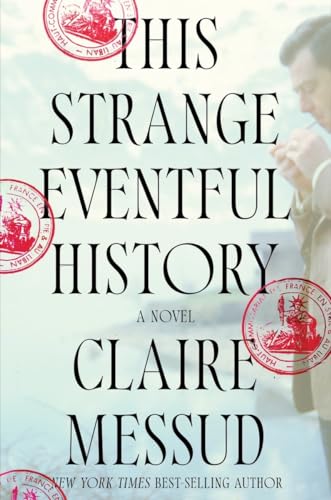This Strange Eventful History
This Strange Eventful History, inspired by the author’s grandfather’s memoir, is organized into seven decades, 1940–2010. The first half avoids showing the Cassar family together, partly due to their displacement by WWII, later by French Algeria’s war for independence. These pieds-noirs survive the war but are later snubbed as ‘Other’ in France. Thereafter the family members live separately and peripatetically across continents, creating the theme of the storyline: migration.
French Algerian Gaston and Lucienne Cassar are a devoted Catholic couple who prove the exemplar of love itself, which their son and daughter, François and Denise, can never fully understand or attain. Their lives are followed through isolated passages of youth (1950s–60s), middle age, failing health, and final years. While Denise remains the sad spinster reliant on her parents, François marries the Canadian Barbara, a marriage continually fraught with disappointment. But in their daughter, Chloe (a stand-in for the author herself), the story transforms through a first-person narrator voice and into a memoir of Messud’s father.
The fullness, ranging lengths, and stream of sentences suggest at times Virginia Woolf. While the novel’s throughline is chronological, it is also disjunct. From the first pages set in Salonica, consequences of war drive the original love story, similar in concept (three generations of family influenced by WWII) to Penelope Lively’s novel Consequences. But Messud’s approach to causality is much more diffused and her range of topics is wide: power of faith in religion, love, and family; familial and personal discontent; French colonialism; an ever-changing political world. A family secret is revealed in the epilogue, and prior to that, the last few chapters lay out the illnesses and dying of the two patriarchs, father and son, in loving if grueling detail.










